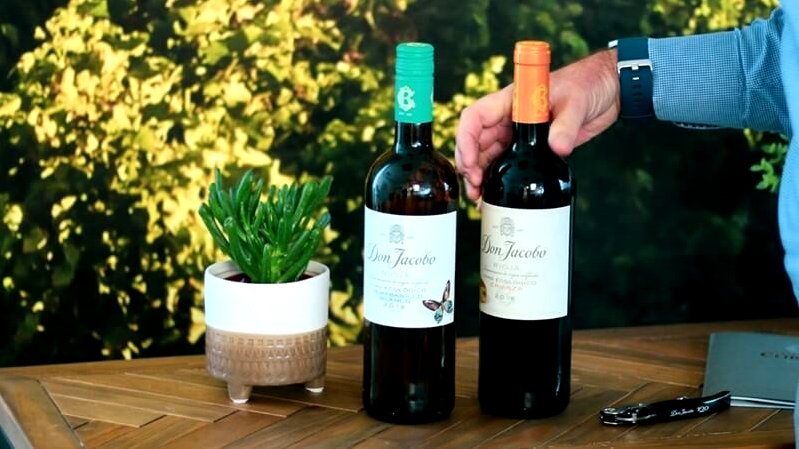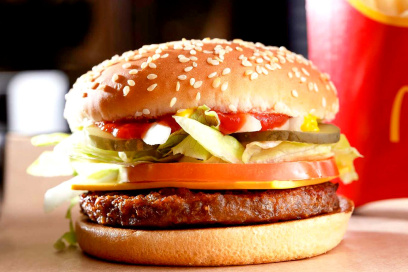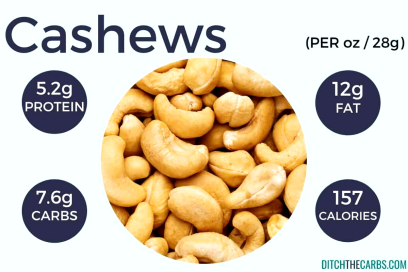At present, an increasing number of individuals are becoming aware of animal welfare, environmental sustainability and personal health, leading them to embrace veganism as a lifestyle choice. Unfortunately, when it comes to wine made from grapes many vegans become confused as they believe that these wines automatically qualify as vegan - however this perception is often not accurate.
Animal-derived fining agents used in wine production has become a growing cause for vegan wine-lovers worldwide, prompting everyone to ask, "Is Red Wine Vegan?" Unfortunately, the answer to this question can often be complex. Multiple factors and practices involved with wine-making determine its vegan status.
With this blog post, we aim to illuminate various aspects of animal-derived fining agents, vegan-friendly alternatives, organic and biodynamic winemaking practices that contribute to their wines being vegan-friendly, as well as how to read wine labels to identify vegan-friendly wines, as well as their ethical and environmental implications in modern wine production.
Wine enthusiasts who care about animal welfare and environmental sustainability will find this blog post to be useful in making informed and compassionate choices when selecting their next bottle of red wine. Together we can work to uncover the truth about whether red wine is vegan-friendly by unearthing all its vegan-friendly alternatives that exist within it.
I. What Makes Red Wine Not Vegan?
At stake is the fascinating and complex world of wine-making, where its process can be far more intricate and multifaceted than many may realize. When creating wine, numerous steps come into play; one particularly crucial one can lead to ethical or moral dilemmas when used improperly: fining agents used for clarifying and rectifying impurities found in beverages (usually animal-derived such as gelatine isinglass casein egg whites); however while these agents can improve and smooth out taste and texture while also making non-vegan wines which could potentially offend some consumers who drink them regularly.
The Problem with Animal-based Fining Agents
Animal-based fining agents are incompatible with veganism because of how they function; these agents bind with wine impurities and work to extract them out, leaving a clean and bright liquid behind. Unfortunately, however, animal by-products containing elements not acceptable by vegans remain behind; consequently it's imperative that alternative vegan-friendly fining agents such as activated charcoal and bentonite be found as vegan-friendly options which not only meet ethical considerations but may even benefit those allergic to egg or dairy related products!
Veganism and Wine Production
Wine producers have recently placed an increased emphasis on sustainability and veganism, leading them to use vegan fining agents. Many wineries are starting to label their wine explicitly as vegan or provide details about their vegan wine-making procedures on their websites; red wine enthusiasts should look out for labels that specify vegan fining agents as well as certification as organic or biodynamic when purchasing red wines. Winemaking involves more than fermenting grapes: it requires science, ethics, creativity - an intricate balancing act.
“Wine is sunlight, held together by water.” - Galileo Galilei
The Complex Process of Winemaking
Winemaking involves more than fermenting grapes: it requires science, ethics, creativity - an intricate balancing act.
- There are many steps to create a delicious wine.
- Wine producers must consider the environmental impact of their production.
- Using vegan fining agents is an ethical and sustainable choice for wine production.
II. Vegan-Friendly Red Wine Options
As we explore veganism, one of the more perplexing questions arises - is red wine vegan-friendly? Thankfully, many wine producers are now embracing veganism and exploring sustainable production practices. If you follow a plant-based diet, fining agents formulated specifically for plant-based wines exist that meet both functional and sensory requirements while eliminating animal products that could cause allergic reactions - providing vegan wine lovers with many sustainable and organic choices!
Organic Wines
Organic wines are generally perceived to be more environmentally-friendly and healthier than non-organic wines due to their production process that avoids synthetic pesticides and fertilizers. Biodynamic wines stand out even further as they adhere to principles of ecological sustainability that incorporate soil health, plant biology and animal behavior patterns into their design.
Vegan-Friendly Red Wines
When searching for vegan-friendly red wines, consumers should search out explicitly vegan-labelled options or organic varieties. Taking this one step further would involve exploring vegan-friendly production practices as well as wineries who recognize veganism.
Don't Compromise on Taste
But does going vegetarian mean forgoing taste to meet ethics? Not at all; vegan wine remains of excellent quality. Taste is still key and one may worry that animal-derived ingredients could reduce flavor; but that isn't necessarily the case - vegans can indulge in high-quality red wines without ethical concerns!
Our next stop will explore labeling laws, definitions, and winery transparency - don't miss it!
Learn about vegan-friendly red wine options at Virgin Wines UK.
III. Navigating Red Wine Labeling for Vegans
Shopping for wine can be an arduous journey for any enthusiast, but for vegans it can become even more of a difficult feat. Deciphering wine labels can be difficult enough; knowing which wines contain animal by-products and which don't can be even more time consuming and frustrating.
However, there are ways to satisfy one's craving for vegan-friendly wine that do not compromise one's beliefs. The first step should be scouring wine bottles or producer websites for information regarding animal-derived fining agents that could potentially compromise veganism; an absence of this label does not automatically rule out its vegan status, necessitating further investigation.
Discovering Vegan-Friendly Wines
As many mobile applications and online resources exist to assist wine enthusiasts in the quest to locate vegan-friendly wines, such as Barnivore and Vegan Wines are pioneering services providing an easier path to discovering wines free of animal products or ingredients; additionally, wine producers committed to ethical wine-making often post their vegan wine selection online, thus simplifying consumption of vegan wines.
Reading Wine Labels
Learning to read wine labels is also key for vegans navigating wine labeling. Organic or biodynamic wines offer vegan-friendly solutions since they don't use synthetic chemicals or fertilizers that contain animal by-products; additionally, following vegan-friendly symbols like PETA's Cruelty-Free emblem can assist them in selecting ethical, eco-friendly wines.
However, it is essential to recognize that wine labeling laws vary between countries and can make deciphering its contents from its label challenging. Therefore, vegan wine enthusiasts must be wary when purchasing wines online or directly enquiring with wineries in order to verify if a specific wine is truly vegan-friendly; some wineries offer vegan-friendly wines on their websites for easier research processes.
Conclusion
Vegans who are unfamiliar with wine labeling must remain vigilant to identify high-quality vegan-friendly red wines that respect animal welfare, environmental sustainability and vegan beliefs. Labels designed specifically for vegans as well as mobile apps and online resources will assist them in discovering an array of high-quality wines suited for vegan palates - these will all be crucial steps toward building their wine portfolio with vegan-rich wines.
Moving forward, we shall explore various winemaking practices that impact vegan status. By considering economic considerations driving wine production decisions, ethical considerations of using animal-derived fining agents, and sustainable winemaking in general as driving forces behind sustainable and vegan production we will shape this discussion further.
IV. The Debate Around Wine-Making Practices
Wine-making practices and their ethical and environmental ramifications present both vegans and wine consumers with an ethical dilemma. Using animal-derived fining agents has severe ramifications for animal welfare and environmental sustainability; some consumers might view vegan alternatives more favourably as food or drinks options; producers who prioritize ethical values during production processes are to be applauded.
Issues with Animal-Derived Fining Agents in Wine-Making
Animal-derived fining agents in wine-making raise numerous issues across economic, environmental, and ethical considerations. While some believe animal-derived alternatives produce brighter wines more efficiently than their non-animal alternatives do, critics emphasize their cruel killing practices for an apparently innocent beverage. Given winemaking requires extensive use of water resources as well as energy consumption and other environmental considerations requiring consideration during its creation process - sustainable yet compassionate approaches must be considered and employed when producing wine.
Consumer Responsibility in Prioritizing Sustainability
As consumers of wine, we must help the wine production industry move towards prioritizing environmental sustainability, ethical practices, and labor rights. By supporting such practices as consumers, we can raise awareness and raise support. When making our selections we must choose wines which help the environment, preserve animal welfare, adhere to ethical wine-making techniques, and comply with sustainable practices for ultimate enjoyment while benefitting planet, animals, consumers, and fellow wine lovers. By adopting sustainable practices we can enjoy wine with confidence while contributing towards a healthier planet and consumer populations alike.
Navigating Vegan Wine Labelling
To successfully navigate wine labeling for vegans, it's essential to do research on wineries, look out for vegan-friendly labels, and use apps which cater specifically to vegan-friendly wines. It is also paramount to remain cognizant of any ethical or environmental debates related to wine-making practices; supporting sustainable and ethical wine-making can protect our planet while safeguarding animal wellbeing as well. Ultimately, wine consumers can embrace sustainable vegan wine production as well as prioritize moral and ethical practices in wine production in order to maximize enjoyment while drinking red wine guilt-free!
Conclusion
Assuring yourself of an ethical wine experience requires going beyond simply selecting plant-based fining agents; rather it encompasses all stages of production with consideration given to factors like environmental sustainability, labor rights and animal welfare. By selecting a vegan-friendly red wine, you are not only making an aesthetic decision but also contributing to creating a fairer world. Although choosing this type of beverage requires some thought and deliberation on your part, the rewards can be substantial. Every sip of vegan-friendly wine feels like an act of compassion. So the next time you browse your local wine shop, take a moment to consider your choices and embrace compassionate consumption.




